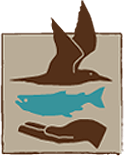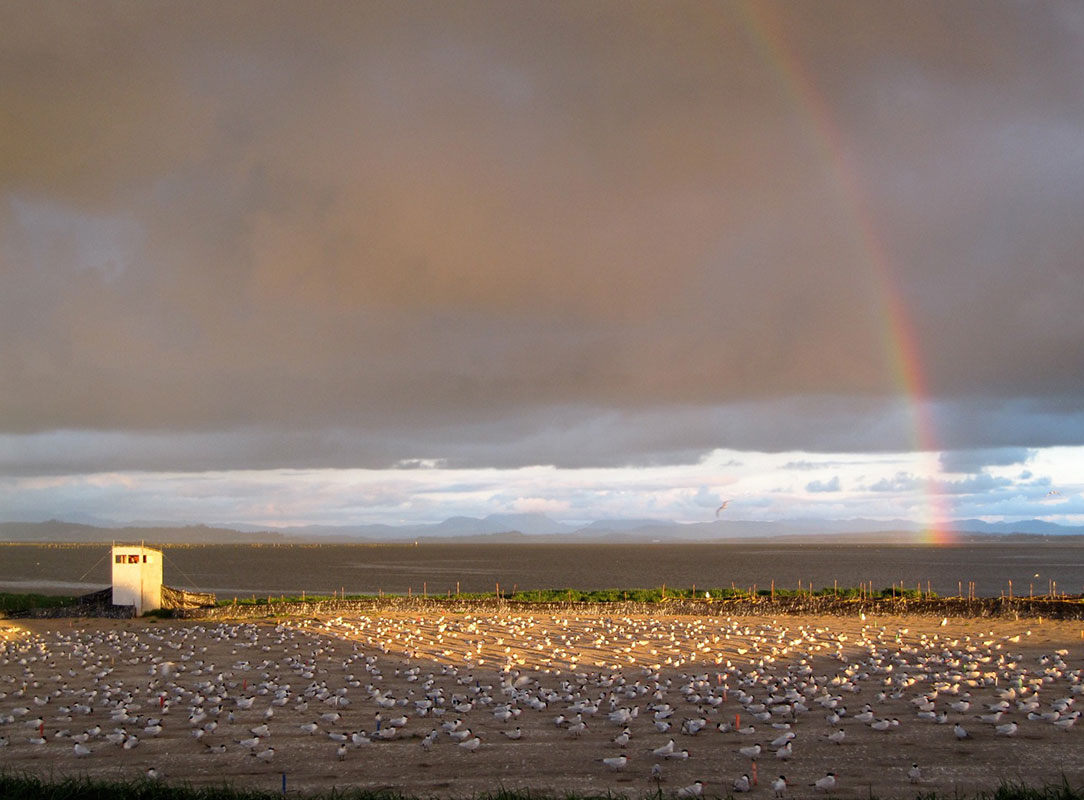 Brooks Island is a natural island in central San Francisco Bay near the City of Richmond, and is owned by the City and managed under a long-term lease by the East Bay Regional Parks District. Brooks Island has been the site of the largest nesting colony of Caspian terns in the Bay area for the last decade. The tern colony is located on a sandy, low-lying spit that extends to the northwest of the island, built from material dredged from the adjacent shipping channel to the Port of Richmond. The Caspian tern colony was estimated at ca. 680 breeding pairs in 2009. Caspian terns nest on the upper part of the beach on the leeward (northeast) shore of the spit. The size and productivity of the Brooks Island Caspian tern colony is currently limited by suitable nesting habitat, which has been declining due to shoreline erosion, spread of invasive vegetation, and expansion of a newly formed California gull colony. The terns nest in close proximity to two species of gulls, western gulls and California gulls; western gulls have traditionally nested on Brooks Island (200 breeding pairs in 2009), but the California gull colony has recently formed on the spit and is expanding rapidly (ca. 1,600 breeding pairs in 2009). Brooks Island is a popular destination for recreational boaters, and is located beneath the flight path of recreational and commercial aircraft. Rats have been inadvertently introduced to Brooks Island and other mammalian predators, such as raccoons and red foxes have threatened the waterbird colonies in the past.
Brooks Island is a natural island in central San Francisco Bay near the City of Richmond, and is owned by the City and managed under a long-term lease by the East Bay Regional Parks District. Brooks Island has been the site of the largest nesting colony of Caspian terns in the Bay area for the last decade. The tern colony is located on a sandy, low-lying spit that extends to the northwest of the island, built from material dredged from the adjacent shipping channel to the Port of Richmond. The Caspian tern colony was estimated at ca. 680 breeding pairs in 2009. Caspian terns nest on the upper part of the beach on the leeward (northeast) shore of the spit. The size and productivity of the Brooks Island Caspian tern colony is currently limited by suitable nesting habitat, which has been declining due to shoreline erosion, spread of invasive vegetation, and expansion of a newly formed California gull colony. The terns nest in close proximity to two species of gulls, western gulls and California gulls; western gulls have traditionally nested on Brooks Island (200 breeding pairs in 2009), but the California gull colony has recently formed on the spit and is expanding rapidly (ca. 1,600 breeding pairs in 2009). Brooks Island is a popular destination for recreational boaters, and is located beneath the flight path of recreational and commercial aircraft. Rats have been inadvertently introduced to Brooks Island and other mammalian predators, such as raccoons and red foxes have threatened the waterbird colonies in the past.
The plan “Caspian Tern Management to Reduce Predation of Juvenile Salmonids in the Columbia River Estuary,” which seeks to redistribute a portion of the East Sand Island tern colony to alternative colony sites in Oregon and California, identifies Brooks Island as one of three sites in the San Francisco Bay Area where resource managers intend to create or enhance Caspian tern nesting habitat. No immediate plans are in place, however, to restore or increase the amount of Caspian tern nesting habitat on Brooks Island.



